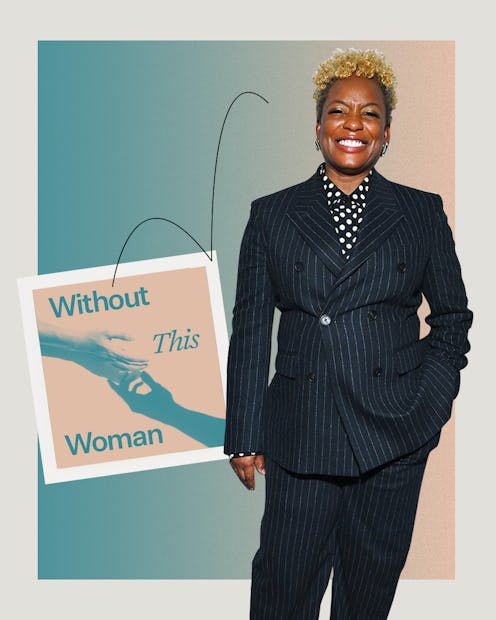TV & Movies
Without These Women, I Wouldn’t Have Permission To Use My Imagination
The Origin star pays homage to the people who led her to Ava DuVernay’s film.

Bustle’s Without This Woman is a series of essays honoring the women who challenge and change us every day. This month, Oscar-nominated actor Aunjanue Ellis-Taylor, who stars in director Ava DuVernay’s Origin, reflects on her activist lineage.
It’s my mother, my sister, and my grandmother. Without those women, I would not have my sense of purpose for building and sustaining community around me. I would not have my sense of wonder, the permission to use my imagination, to create what I don’t see.
My grandmother, Myrtis Taylor, took me in when I was 3 years old. She was restrained and reserved in her emotions, but she loved me with such intention and care, even if she never said it. By the time I was living with her, not too many years outside of Jim Crow Mississippi, she was actively voting and trying to get others to vote. This community of women in McComb, Magnolia, and Pike County, Mississippi, were involved in this work, knowing it was dangerous.
She and those women were also the foundation of the church that I went to, New Home MBC. My childhood was sitting in the back seat of my grandmother’s car while she visited people who were sick and shut in. That was what my grandmother did. She fed people; she took care of people. I learned from her example.
“The seeds of creativity and imagination in my life came from my mother.”
My mother, Jacqueline Taylor, raised me with magic. She was a contemporary of Angela Davis and Assata Shakur. She had turned away from the traditional life that my grandmother had as a housewife and felt she had to go out in the world and tear down the strongholds of oppression. As a result, she was kicked out of college and went to Georgia to work for the Student Nonviolent Coordinating Committee (SNCC).
She wanted to travel the world. I think of my mother the way that Toni Morrison described Sula: She was an artist without paints and brushes. The seeds of creativity and imagination in my life came from my mother. When I lost her, I lost my home.
But my mother passed the reins on to my sister, who has become my resting place. Even though she’s actually 12 years younger than I am, she’s oftentimes my “mama sister.” She takes care of me. Without her, I would feel alone.
She was the one who read with me when I auditioned for the film King Richard. She was there, reading and taping with me over and over and over. And when I heard Ava DuVernay was in the midst of casting Origin, I wanted to insert myself into that conversation. I said, “OK, how do I do that?”
I looked at a picture of Ms. Isabel Wilkerson and I said, “I think I can make myself look like her.” I showed a picture of Ms. Wilkerson to my sister, and she said, “We can make you look like that.”
“Even though she’s actually 12 years younger than I am, she’s oftentimes my ‘mama sister.’”
Ms. Wilkerson likes to wear pearls. She often wears this burgundy sheath dress and a burgundy lipstick. She wears her hair a certain way. So we started shopping. My sister got the pearls from Amazon. We went to the local beauty supply and got a wig, and we ordered a dress from Nordstrom, or somewhere like that.
And my sister put me in the middle of her living room in Hattiesburg, Mississippi, and took a picture of me, which we sent to the casting director, Aisha Coley. Aisha Coley sent it to Ava DuVernay, and Ava wanted to talk to me about playing Ms. Wilkerson.
So I think it’s a trinity. I am here, talking to you, because of those women: my grandmother, my mother, and my sister. Literally.
As told to Leila Barghouty. This interview has been condensed and edited for clarity.
This article was originally published on